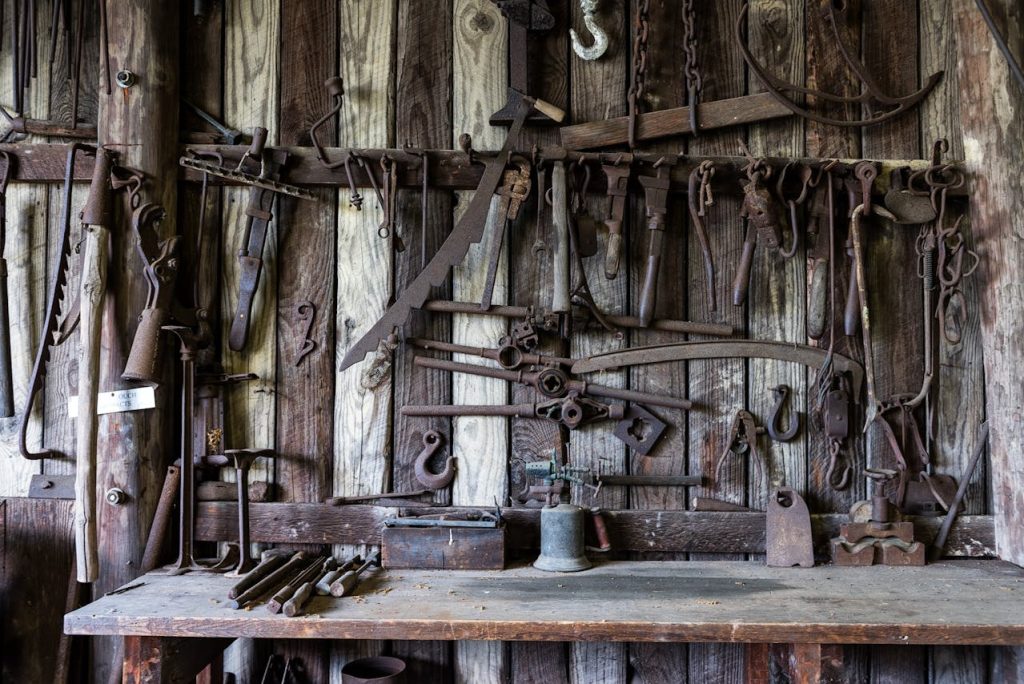Dominion Means Work

Originally published in the Southern Cross Magazine. Republished with permission.
I’ve been a homeowner for a few years now, and I’ve discovered something that I never really thought about when I was an apartment dweller. Stuff breaks.
If I shared the things that I’ve had to repair on this house (not to mention the three bedrooms and two bathrooms that I built with my own two hands), this article would look like a list of episodes for “This Old House.” It’s never ending.
A few months ago, my dryer stopped working. My 11-year-old son discovered it. This was our conversation before school:
“Dad, my pants are still wet!”
“Well, put them back in and turn the dryer on. You’ve got time.” A few minute pass.
“They’re still wet.”
“Stop complaining. Let me see them. Wow. They are still wet. And cold… Oh. No.”
I have five children. The tsunami of clothing that we produce on a weekly basis staggers the mind. A broken dryer is a CRISIS. Don’t panic.
“Go find some pants in the hamper that look clean. The dryer’s broken. I have to fix it.”
While my wife got the kids ready for school, I fiddled with the dryer enough to conclude that the heating element was broken and needed to be replaced. I snapped a photo of serial number. I’d never fixed a dryer before, but ignorance is the normal starting point for learning a new skill.
At lunch, I ran to the local appliance repair shop and picked up a new heating element. I spent my remaining lunch break searching for videos about replacing dryer elements on Youtube. By the time I got home, I was ready for action.
I had removed the entire back of the dryer before I realized that I’d watched the wrong video. More research. The good news was that I found the right video. The bad news was that it was way harder to do than the wrong video. I reinstalled the back panel and flipped the machine around. With my model, I had to completely disassemble the dryer to replace the heating element, which was under the drum and behind the front panel.
It took me about three hours to take it apart and put it back together again. Dryers are actuallly pretty simple machines. I only had one left over piece that I had to go back and install, which isn’t too bad. I also cleaned out enough lint to stuff a badger. Major fire hazard. The machine hummed back to life after I plugged it in. Thank the Lord!
God, what’s the plan?
I had to wonder about God’s plan in all this. My stuff just keeps breaking. Is entropy (the scientific term for things breaking and falling apart) really just the result of the Fall? Or is it part of “The Plan”?
Back in the Beginning, God settled Adam in the Garden of Eden to care for and cultivate it. (Gen 2:15). The word often used for this work assignment is “dominion”. The word dominion has come to imply domination and conjures images of clear cut rain forests paved over to make parking lots for big box retail stores. Or Isenguard after Sauromon cast his lot with Sauron.
But that’s the wrong way to think about it. It’s a vision of dominion that has been corrupted by the fall, but doesn’t reveal God’s original intent.
A well maintained garden is often more beautiful than an unkempt wilderness. The attention of a gardener also makes the garden more fruitful than a plot untilled earth.
There’s something of a mystery in this, because God created man for the garden as much as He created the garden for man. The work of man turns the wilderness into a garden, while at the same time the work of gardening enables the man to walk with God. Good work lifts both nature and man closer to their Creator.
Work was part of God’s plan from the beginning. Jesus shows us this reality by the fact that He spent 90% of His earthly life working as a craftsman. Here is the Incarnate Word, Who brought the ordered universe into being out of nothing (the rawest of raw materials), himbling himself to make chairs, tables, and household items out of bits of wood. He demonstrates that this work of human creation is not beneath the dignity of God, the Creator of all things. Instead, human creativity, human work, is like that primordial creative act in miniature.
Jesus teaches us that our labor is not an obstacle to holiness. Prayerfully united with Christ in His hidden life at Nazareth, it is the way to grow in holiness. Luke 2:40 shares that it was in this hidden life that Jesus grew in strength and wisdom. We can confidently follow His example.
When I exercise dominion on my little plot of land out in the country, I am transforming it from a wilderness into a garden where my family can flourish. My work provides them with shelter from the weather, hot food (I’ve fixed my stove on three separate occasions), clean and dry clothing, etc. I have also made the space more beautiful and orderly… except my tool shed, the last stronghold of the primordial chaos.
This kind of work is not about success or accomplishment. Rather it is Love made concrete, tangible. My oldest son sleeps in a bunk bed that I made in a room that he helped build. He knows that I love him because of the work that I do for him. In fact, teaching him how to work is one of the most important things I do as a father. Good work will give him an opportunity to become more like Jesus.
Jesus snatched me out of the darkness and saved me from complete madness. If you want to hear more of that story, check out Demoniac, now available on Amazon.

